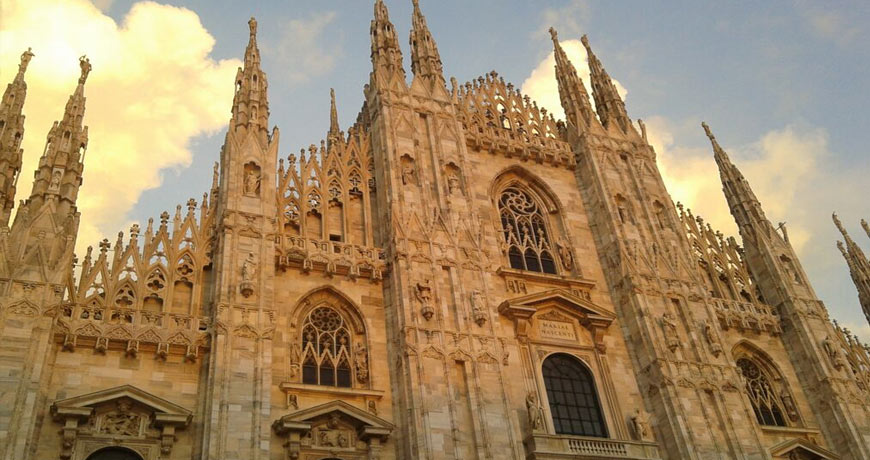Touristic information: Milan

Milan's founding by the Insubrian Gauls dates back to the 4th century BC. After about two centuries the city was conquered by the Romans and then by the Longobards and Charlemagne's Franks. In 1162 it was invaded and destroyed by the Barbarians led by Frederick Redbeard.
During the 12th century Milan became a signoria of the Visconti and in 1494 Ludovico Sforza, also known as Il Moro (The Moor), rose to power. Later the city was governed by the French and then by the Spanish Branch of the Hapsburgs. In 1706 it went to the Austrians but after less than a century Napoleon Bonaparte took power proclaiming Milan the capital of the Cisalpine Republic. Final liberation from the Austrians only arrived with the battle of Magenta of the 5th of June 1859.
At the end of the 20th century conflicts, Milan always suffered very serious damage, but a quick reconstruction promptly made it the centre of Italian economic life.
Milan can also be an important tourist centre. The heart of the city is the Duomo, an important example of late-gothic architecture. Don't miss the Palazzo Reale, a masterpiece of neoclassical art and an important exhibiting area hosting national and international exhibits, as well as the Duomo collection, and Palazzo Marino, a 16th century work of residential architecture.
The Castello Sforzesco should be seen, a most important and glorious Renaissance example, built by Galeazzo II Visconti around 1368, as well as the Accademia di Belle Arti, which contains an art gallery containing masterpieces by Mantegna, Tintoretto and Caravaggio.
During the fashion shows season the city dons its most glamorous appearance: the calendar of leisure activities thickens and the temptation to get lost among the hundreds of fashion-related happenings becomes irresistible both for fashion lovers and for visitors who just want to experience the most exclusive venues.
Milan is the city of the Triennale. The Palazzo dell'Arte is the prestigious seat of the festival, which can be considered the mirror of Italian artistic and architectonic culture and one of the major exchange and feedback opportunities for emerging trends. Inside it you can visit a permanent design collection and the Galleria storica della Triennale.
As far as shows are concerned, the most important opera theatre, La Scala, with the Piccolo Teatro founded by Giorgio Strehler, are the two most important centres in the city's cultural scene. Currently this temple of opera is being restored and its shows have been moved to the Teatro degli Arcimboldi.
